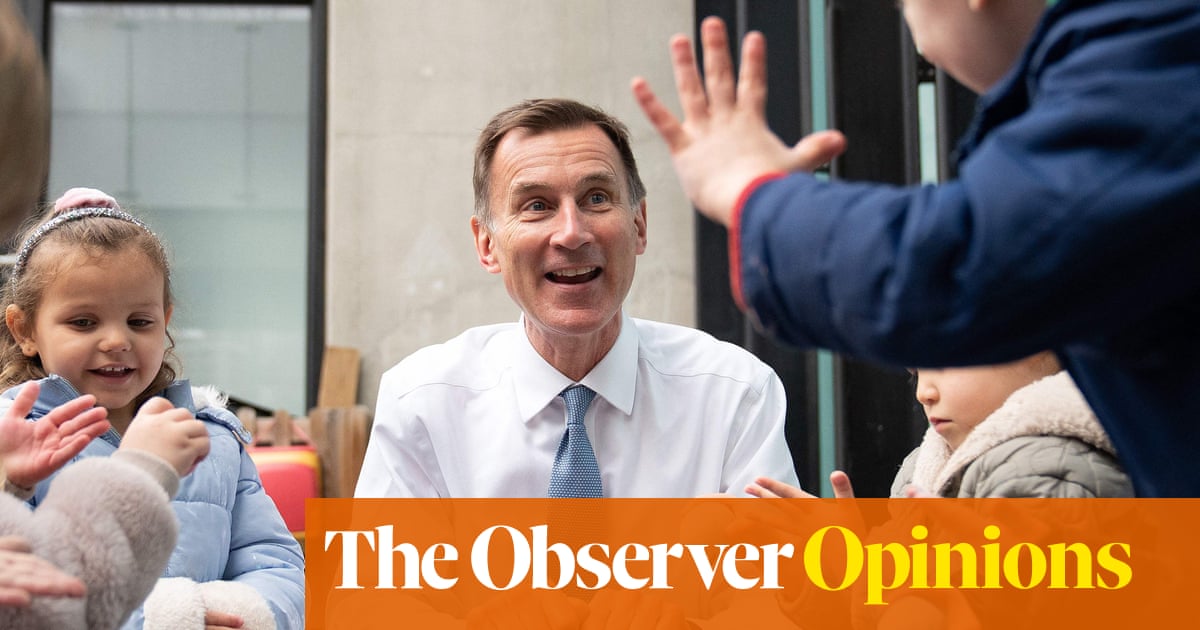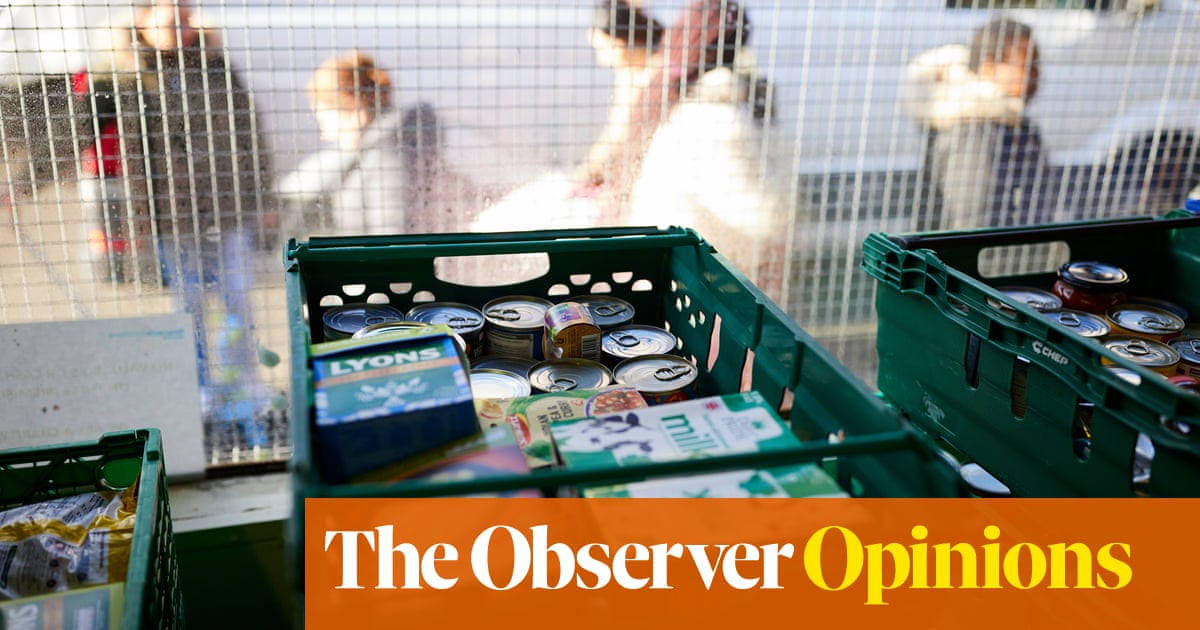
Last week, a stranger messaged me to ask if I’d buy them some groceries.
“If not, I completely understand,” concluded the message that popped into my inbox from a young mum. “Be blessed.”
Perhaps this message would have once seemed unusual. But there has been a noticeable and distressing rise in the number of individuals resorting to digital fundraising in the UK since March, when the economic effects of the pandemic really started to bite. That people are turning to “internet begging”, as it’s uncharitably referred to, is an unsurprising development: about 730,000 people have lost their jobs since the beginning of lockdown – and that’s only those who’ve made it into the official statistics. The threat of mass homelessness forced the government to extend its ban on evictions at the eleventh hour last week. Food bank usage has almost doubled, with the Trussell Trust reporting an 89% rise in demand for emergency food parcels during April compared to last year.
Behind all this sits the skeletal remains of the British welfare state, stripped to its bones by successive governments. Universal credit, the main port of call for those in need of financial support, is unfit for purpose, with its meagre payments and sluggish system pushing low-income households further into poverty (such are the problems plaguing this system, it would need an £8bn overhaul to provide a “dependable” safety net, a cross-party House of Lords committee recently concluded).
While digital crowdfunding is far from a new concept – “charity” wasn’t exactly invented in 2020 – it has become more popular during the pandemic. We’ve already seen it take root in the US, where the private healthcare system has forced many to turn to crowdfunding to meet basic medical bills: a third of all donations made to fundraising platform GoFundMe are for US healthcare-related costs. But people in the UK had been comparatively insulated from leaning too heavily on the crutch of crowdfunding. Until now.
Within a month of lockdown, the number of crowdfunders visible on my social media timeline had risen steadily. Every day it seemed there was another GoFundMe or Paypal.Me link circulating. Their purpose had changed too: while the usual solicitations for help with expensive medical treatment or raising money in memory of a lost loved one were still there, joining them were regular requests for assistance with smaller, more rudimentary costs: rent, electricity bills, another year of further education funding for students whose graduate teaching jobs had suddenly disappeared.
The figures back this up: a spokesperson for GoFundMe confirmed that crowdfunders for individual causes increased by 75% between March and July 2020 in the UK compared with the previous year. They believe this growth is a direct result of the financial impact of Covid-19. UK fundraisers for charities and organisations also rose by 65% during the same period, while there’s been a big increase in UK campaigns mentioning the term “food banks” from January to August since 2019. In April, Google searches for GoFundMe and the rival fundraising site JustGiving hit their highest UK level since data collection began back in 2004.
Finding other forms of support lacking, people seem to have resorted to a 19th-century model in which private citizens fund each other and communities in need, whether that’s a GP raising money for protective gear for NHS colleagues the government has failed to provide, or the son of Rwandan refugees crowdfunding £60,000 to realise his dreams of studying at Cambridge University. This explosion of private philanthropy rivals the Victorians, who championed charity as a civic duty for the middle classes. Along with slum housing and child exploitation, it seems the UK is reverting to the arcane standards set by its 19th-century forebears.
While the temptation here might be to celebrate the charitable impulse on display, we should regard this situation with the horror of the Victorian journalist Henry Mayhew: as a measure of the “scale of misery” wrought by the lack of other options. Crowdfunding can be a useful way of raising cash, but when it’s Polyfilla for state support, its pitfalls become obvious. One of these is that crowdfunders individualise the fulfilment of basic needs. Payout recipients are decided by benefactors’ personal preferences and ideas about who is most “deserving”, much like the idea of the “deserving poor” that preoccupied Victorian philanthropists. Research shows that crowdfunding efforts can be subject to racial bias, with white individuals likely to pull in higher sums. Existing platforms also make a difference – those who already have wide digital networks are more likely to be able to publicise their causes, compared with others who may have greater immediate need but nowhere near the online reach.
And human beings aren’t consistent when it comes to giving: as the 2008 recession wore on, charitable donations decreased by 11% in the UK. Fewer people were donating and the amounts they did give were reduced. That’s not to say crowdfunding can never be a force for good. If deployed correctly, it can be lifesaving, offering direct funding that its recipient can control, with no bureaucratic strings attached. For marginalised demographics, crowdfunding has also been a positive force, especially in cases where UK state provision has not yet caught up, such as funding surgery for medically transitioning individuals with gender dysphoria.
But although private philanthropy can complement state support systems, it should never be plugging holes that were once filled by the welfare state. Victorian paternalism is a relic of our past that belongs in academic journals. Trickle-down charity didn’t lift the poor of the 19th century, deserving or not, out of poverty, and it’s not about to start doing so 200 years later. Those in need deserve much more than the fluctuating whims of charitable benefactors.
• Moya Lothian-McLean writes for gal-dem, The Independent and Vice












